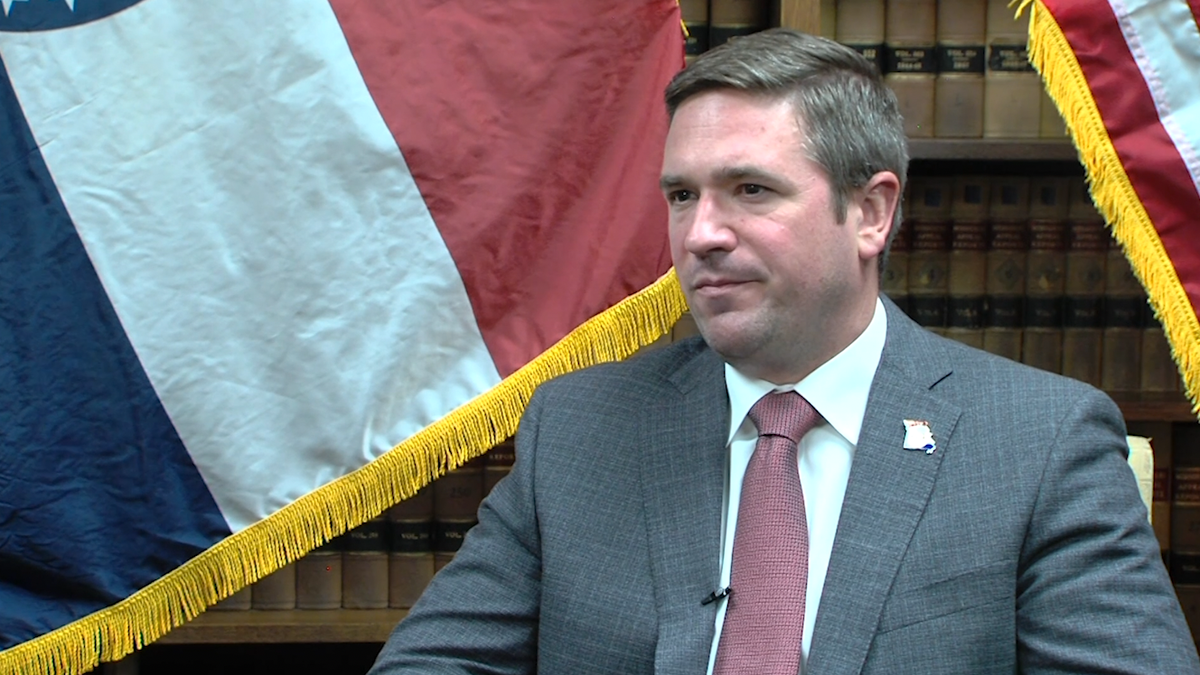NAACP claims Missouri AG illegally withheld data in vehicle stop report in new lawsuit

Erika McGuire
COLUMBIA, Mo. (KMIZ)
The Missouri NAACP has sued Attorney General Andrew Bailey for failing to include the disparity index, a key racial profiling measure, in the state’s 2023 annual vehicle stops report.
The disparity index measures whether officers are stopping minority drivers at a higher rate than white drivers. It is published in the AG’s Vehicle Stops Report, required by law to be released each year.
In the 2023 Vehicle Stops Report, Bailey’s office stated: “Previous VSR reports have calculated a ‘Disparity Index’ for traffic stops by race and ethnicity for the state overall and for each agency. However, after close study, the research team has recommended removing the disparity index from the VSR as it is of limited analytical value.”
The report argues that the VSR already includes detailed data on traffic stops and population rates by subgroup, so the disparity index doesn’t offer any additional insight. It also states that the index isn’t reliable for comparing different agencies because of variations in local demographics and driving behaviors, and that it’s often misinterpreted.
On Nov. 13, 2024, the NAACP requested documentation under the Sunshine Law from Bailey on his decision to remove the disparity index. However, after weeks of back and forth, the lawsuit says that on Feb. 26, Bailey’s office said the documents would be ready in a week. They were never delivered.
Don Love, who has analyzed vehicle stop data for years says it is important to compare drivers of certain races but it needs to be done with a better metric.
“It would be better to have a comparison of rates, but the problem is the law requires that but it doesn’t prevent another metric from being used which would be a comparison of rates,” Love said.
However, Love added the numbers don’t tell the full story, but they can flag a potential issue.
“You still have to look more closely what the officer knew and why he or she did it for instance there was something more important than the speed violation perhaps they knew something specially about that driver.” Love said. “It doesn’t prove anything, it doesn’t say officers are bias or whatever else because there could be lots of reasons for the disproportion to exist,”
Replacing the disparity index by using rates instead would be a better option Love said.
“You have to put something else in there that tell people at least at much as the disparity index does but does a better job at doing it because its easier to understand and theres less draw backs to that metric,” Love added
The NAACP also claims Bailey and the University of Missouri violated the Sunshine Law by not providing documents on why the disparity index data was left out of the report or if the index was calculated at all.
The lawsuit says a summary of statewide vehicle stops was provided to a team of researchers at the University of Missouri, and the NAACP reached out to the university for their findings and the reason it did not include the index.
After six months, the lawsuit claims the university provided 44,300 pages of documents. However, the lawsuit states the university said, “Please be advised that many of the records identified in response to your search criteria have been withheld.”
University of Missouri spokesperson Christopher Ave said in a statement Thursday that “we deny liability for the violation alleged in this case and plan to present our defenses in court.”
In the filing, the NAACP is asking the court to order Bailey to include the disparity index in future Vehicle Stops Reports and to release records requested last year related to the decision to remove the index
The vehicle stops report for 2024 was released on Thursday, showing higher stop rates for Black drivers than white drivers.
The 2023 vehicle stop report showed black drivers in Missouri were pulled over at a higher rate based on their percentage of the population in 2023, according to the report.
In 2023, Missouri law enforcement agencies that filed reports recorded 1,367,150 vehicle stops, resulting in 61,990 searches and 57,713 arrests. The overall number of stops represents a 7% increase from 2022, while the number of arrests increased by 17%.